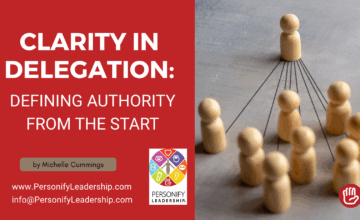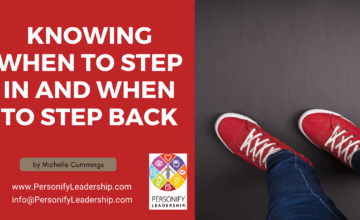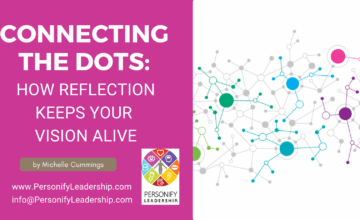The Conversation Isn’t Over When It Ends
- Jul 29, 2025
- By personifyadmin
- In Newsletters
- 0 Comments
Many leaders put time and energy into preparing for a difficult conversation but overlook a critical final step – following up. Without follow-up, even the best intentions during the conversation can fade, leaving room for misunderstandings, uncertainty, or a return to old patterns.
Following up ensures that both parties are clear on what was discussed, what was decided, and what will happen next. It is an opportunity to reinforce agreements, answer lingering questions, and confirm that you are moving in the same direction. This step transforms a single conversation into meaningful, lasting progress.
A good follow-up can take different forms. It might be a quick face-to-face check-in, a phone call, or a short written summary of the discussion and next steps. The format matters less than the act itself; it shows that you value the outcome and are committed to keeping things on track.
It is also a chance to assess how the other person is feeling about the conversation. Sometimes emotions can shift after time to reflect, and a follow-up creates space to address any concerns before they become obstacles.
Leaders who consistently follow up send a powerful message about accountability. They show that difficult conversations are not just about addressing a problem in the moment, but about creating alignment and forward momentum over time.
This habit also strengthens trust. People know they can rely on you not just to talk through challenges, but to ensure the solutions are implemented and supported. It turns hard conversations into opportunities for real, measurable change.
Our Core Program helps leaders develop the discipline and communication skills to follow through after tough discussions, ensuring clarity, commitment, and continued progress.
~by Michelle Cummings, Founder & CEO, Personify Leadership
Tip/Tool for Implementation: Close the loop. Follow-up turns a tough talk into lasting change.
Leaders who follow up after difficult conversations confirm clarity, reinforce agreements, and keep momentum going. This habit builds trust, prevents misunderstandings, and ensures that discussions lead to real and lasting progress.
Supportive Research: “You Just Had a Difficult Conversation at Work. Here’s What to Do Next” — Harvard Business Review (2017). by Dolores Bernardo






Recent Comments